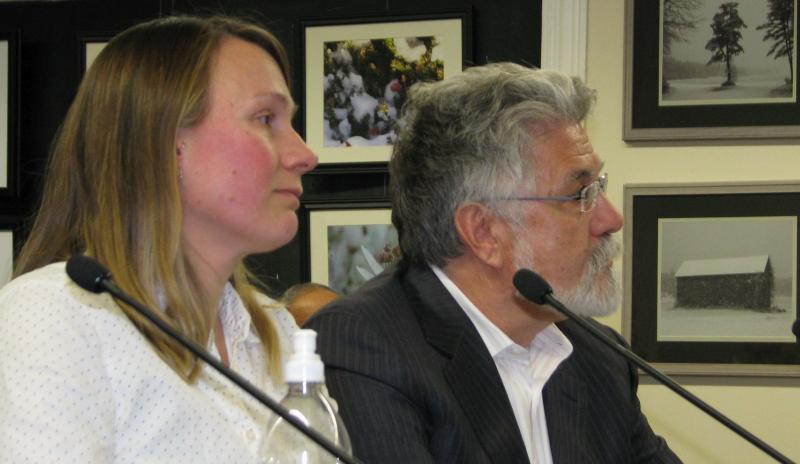Selectmen give thumbs up to marijuana dispensary
Selectmen Tuesday gave formal backing to Compassionate Care Clinics’ effort to establish a medical marijuana dispensary in Wareham.
Citing the potential financial benefits to the town and Compassionate Care’s commitment to work with local officials, Town Administrator Derek Sullivan told Selectmen, “We have a good partner here.”
In October, Selectman had expressed verbal support for the clinic.
On Tuesday, two Compassionate Care officials made a short presentation and fielded questions from the board. Then Selectmen voted two in favor, none opposed and one abstention to direct Sullivan to sign a memorandum of understanding with the clinic and to send a letter of recommendation to the state Department of Public Health – where Compassionate Care will apply for a state license to operate a Wareham clinic.
Voting in favor of the clinic were Selectmen Peter Teitelbaum and Alan Slavin. Chair Patrick Tropeano left the room during the discussion and vote, explaining that he had helped the clinic “obtain a location” in town. Steve Holmes was absent from Tuesday’s meeting altogether.
Abstaining was Judith Whiteside, who had earlier asked clinic officials what they would say to someone who asked about marijuana’s role as a “gateway drug.” She said her reason for abstaining was “personal,” explaining only that she had a daughter who is a social worker.
Addressing Selectmen, Compassionate Care Executive Director Shelley Stormo and Chief Financial Officer David Aubrey did not specify an address for the clinic. Outside the meeting, they said they were looking at a couple of locations “in the Institutional District . . . right next to Tobey Hospital.”
The Selectmen’s vote of support still leaves Compassionate Care one item short of what is needed to apply for a state permit. That one piece is a place to cultivate and process the cannabis. The clinic officials said they are looking at nearby towns for the agricultural piece of their business and need to have a cultivation site approved by that town’s officials before submitting an application to the state.
The potential financial benefits to Wareham are twofold.
As described by Sullivan, the clinic has committed to paying the town a percentage of gross proceeds ascending from 3 percent or $100,000 (whichever is greater) in the first year of operation to $3.5 percent or $150,000 (whichever is greater) in the third year and beyond.
In addition, a foundation associated with the clinic would annually donate to local groups. In her initial remarks, Stormo cited the Wareham Free Library and Council on Aging as two “obvious areas” for attention.
In response to Whiteside’s gateway-drug query, Stormo said she was convinced by studies that the availability of medical marijuana as an “alternative form of pain relief” actually decreased the rate of opioid addiction.
Earlier in the meeting she had explained that marijuana would be sold in a variety of forms including salves and oils. “A lot of people are not smoking it to get their medicine,” she said.
Under the state’s new medical marijuana regulations, a potential patient needs to get a doctor’s prescription and then use that to apply for a card from the state Department of Public Health.
Both Sullivan and Stormo noted that clinic officials had met with Police Chief Kevin Walsh, who Sullivan said had “no concerns” about the clinic’s Wareham proposal.















